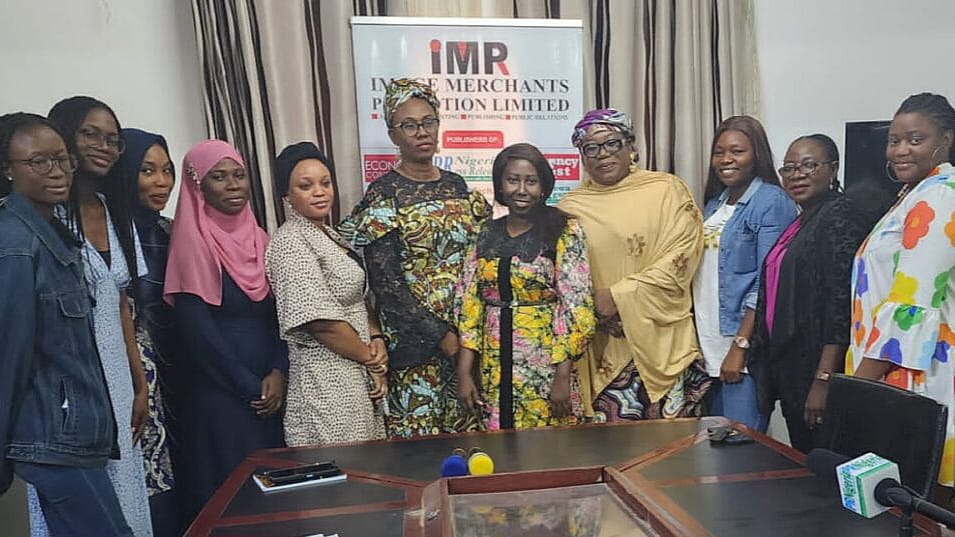PRNigeria Ladies have strongly condemned the “dangerous tendency” of the media in Nigeria to reproduce and sensationalise stories that are capable of destroying the hard-earned reputation of the womenfolk.
In September, a video titled “Nigerian women are the most unfaithful in the world” went viral on social media platforms; several newspapers and blogs feasted on the fabrication, using similar headlines.
At a press conference at the PRNigeria Centre in Abuja, the advocacy group of Image Merchants Promotion Limited (IMPR) described the fake news as embarrassing. Team Lead, Rahma Oladosu, said an investigation found it misleading as it originated from a foreign site which earlier deleted it.
Oladosu, who recalled she and colleagues wrote articles and conducted vox pops to denounce the story, accused a “seemingly misogynistic section of the Nigerian press” of painting women as morally bankrupt and have nothing to offer apart from their bodies.
ECOWAS’ stand on Niger not dictated by France — Amb Tuggar
Odusanya: I will perform well if picked to represent Nigeria at Olympics, C’wealth Games
“Our women are being portrayed as people meant to have few opinions on issues and depend on others for validation. The tendency of the media to jump at any negative claim about a Nigerian woman, escalate it so that fellow misogynists can torment and abuse the gender, is worrisome,” she noted.
“Fact-check revealed that a Durex survey was misinterpreted for sensationalism. We found out that there was no infidelity survey that put Nigerian women on top of the table. The survey was on a different topic and there was nowhere in the original report where our women were linked with infidelity.
“The site that initially published the falsehood many years ago has since taken it down. The report was first published in 2012 and it was shocking to see it trending in 2023 with another set of media houses feasting on it afresh. This is a gross indictment on professionalism and credibility.
“Introspection would have shown that the story was old and should have been ignored. It is improper to tag the womenfolk in a web of infidelity in a country where the majority of women are fighting tooth and nail, making sacrifices in the face of adversity to take care of their husbands and children.
“PRNigeria demands that the report be deleted; media houses must improve their process to detect false reports and stereotypes. Rather than joining the mob to shame women, the media should spotlight their greatness, celebrate professionals and business leaders making the nation proud locally and internationally.”
Oladosu contended that promiscuousness nor unfaithfulness is not the symbol of the Nigerian woman, saying Ngozi Okonjo-Iweala, Amina Mohammed, Chimamanda Ngozi Adichie, Tobi Amusan, among others, are examples of exceptional females.
“Also, PRNigeria Ladies went to Lusaka, Zambia, and won two 2023 SABRE African Public Relations Awards for our advocacy work on national unity and good governance. Negativity does not define women, our passion and all-conquering spirit do,” she concluded.
Mrs Mudasiru Josie of Women Affairs Secretariat of the Federal Capital Territory (FCT) hailed IMPR – publishers of PRNigeria, Economic Confidential and others – for providing factual information to the public through a series of fact-checking.
The official enjoined the ladies to collaborate with the government to fight the injustice against women and asked media houses who peddled the mischievous information to take it down from their sites and apologise.
In her remark, Hajia Fatima Abaji of the Nigerian Institute of Public Relations (NIPR) equally commended the advocacy group for their vibrant crusade against disinformation and stereotypes against women.
“As PR professionals, this is the kind of campaign we should support to ensure that not only Nigerian women, but the country as a whole must be protected and promoted by patriotic citizens,” Abaji said.
The campaign is supported by the Wole Soyinka Centre for Investigative Journalism (WSCIJ) under the Collaborative Media Engagement for Development Inclusivity and Accountability project (CMEDIA) funded by the MacArthur Foundation.

 Join Daily Trust WhatsApp Community For Quick Access To News and Happenings Around You.
Join Daily Trust WhatsApp Community For Quick Access To News and Happenings Around You.